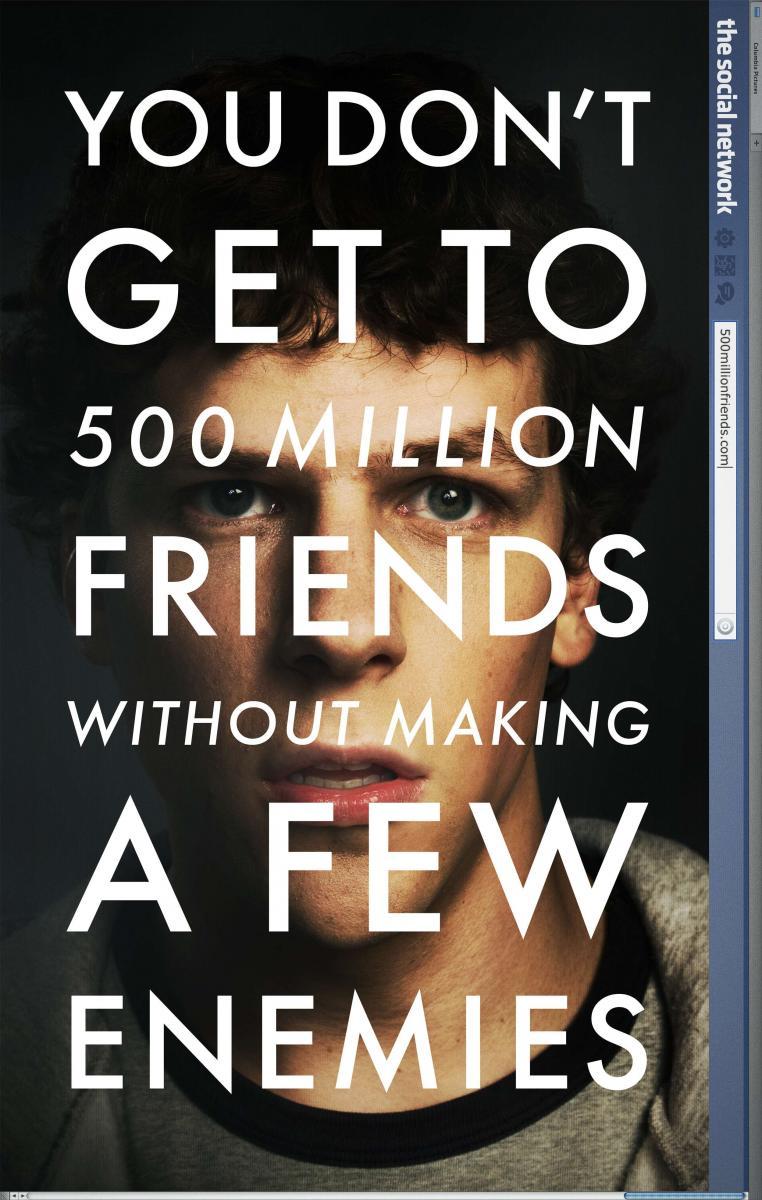"The Social Network" is a 2010 drama film directed by David Fincher and written by Aaron Sorkin. It tells the story of the founding and early days of Facebook, the social media platform created by Mark Zuckerberg, and the legal battles that ensued. Here's a summary of the movie:
Plot Summary: The film opens in the fall of 2003 at Harvard University, where Mark Zuckerberg (played by Jesse Eisenberg), a brilliant but socially awkward computer programming student, is dumped by his girlfriend Erica Albright (played by Rooney Mara) during a heated conversation. Driven by bitterness and a desire for social acceptance, Zuckerberg embarks on a mission to create a platform that will connect people online.
In a drunken rage, Zuckerberg hacks into Harvard's student database and creates a website called "FaceMash," where users can compare photos of female students. The site becomes an instant sensation but also leads to disciplinary action from the university.
Zuckerberg's talent catches the attention of Cameron and Tyler Winklevoss (both played by Armie Hammer) and their business partner Divya Narendra (played by Max Minghella), who approach him with an idea for a social networking platform called "Harvard Connection." Zuckerberg initially agrees to work on the project but instead starts developing his own social network, "The Facebook," with the help of his best friend Eduardo Saverin (played by Andrew Garfield).
"The Facebook" quickly gains popularity among Harvard students and eventually expands to other Ivy League universities. However, legal disputes and conflicts arise between Zuckerberg and the Winklevoss twins, who claim he stole their idea. Additionally, Zuckerberg's relationship with Saverin becomes strained as the company grows, leading to a falling out.
Sean Parker (played by Justin Timberlake), the founder of Napster, enters the picture and becomes a mentor to Zuckerberg. He encourages the young entrepreneur to move to Silicon Valley and secure venture capital to expand Facebook. Saverin's ownership stake in the company is diluted, leading to a lawsuit.
The film alternates between scenes of the legal depositions and flashbacks, revealing the events that led to the lawsuits. Ultimately, "The Social Network" explores themes of ambition, betrayal, friendship, and the ethical dilemmas surrounding the creation of one of the world's most influential social media platforms.
At the end of the film, Zuckerberg reflects on his creation, acknowledging both its success and the personal costs it has incurred, including the loss of friendships.
"The Social Network" is a compelling and thought-provoking portrayal of the complexities behind the rise of Facebook and the personal and legal conflicts that accompanied its growth. The film received critical acclaim and won several awards, including three Academy Awards.










 It's an amazing website that will help you in business ideas, stories of rising different of difference company and motivation
It's an amazing website that will help you in business ideas, stories of rising different of difference company and motivation